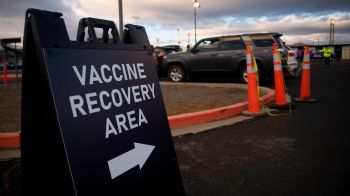TEXT OF INTERVIEW
Bill Radke: Even if we all agreed what caused this recession, what do you think we’ll learn from it? Theologian and author Jim Wallis is asking that question in a book called Rediscovering Values. Reverend Wallis, good morning.
Reverend Wallis: Good morning, Bill.
Radke: You have said that instead of asking when the crisis will end, you want people to ask how this mess will have changed us for the better. So let me ask you.
Wallis: Underneath this economics crisis, there’s a values crisis. And I don’t think we’ll get to economic recovery without a moral recovery, too.
Radke: Why do you say there’s a values crisis?
Wallis: We’ve had some new maxims: Greed is good, it’s all about me, and I want it now. Now those kind of maxims wreck economies.
Radke: We’re pretty familiar with the accusations of greed on Wall Street. What about greed on Main Street?
Wallis: I’m seeing very new creative things happening at the local level. I’m from Detroit — urban gardening has sprung up all over the place. It’s work, it’s good food. In Ohio, there are churches that are taking offerings to do unemployment work. New things around hunger, housing, jobs. I think this could be a chance to really learn. If we go back to business as usual, back to normal, we will have really failed here and squandered this opportunity.
Radke: The Great Depression lasted for years. Do you ever find yourself rooting for a slow instead of a fast economic recovery from this?
Wallis: No, I am rooting for a reset. It’s not slow or fast, I want to not go back to where we were. I want to say, where can we chart a different course here? For example, to move to a clean energy economy is more than rewiring the energy grid, it’s rewiring ourselves — our habits, our choices, our expectations. On the banks, a number of us are deciding to move our money to local banks that have really behaved much more responsibly and still serve our communities. So I think there could be a real mini movement here, a citizen movement of people trying to look at their own family, lifestyle, choices, and accountability on Wall Street and in Washington. I think we have to rebalance — we’ve lost our balance here, how do we regain our balance and then go forward?
Radke: Reverend Wallis is the author of “Rediscovering Values on Wall Street, Main Street, and Your Street.” Reverend, thank you.
Wallis: Great to be here.
There’s a lot happening in the world. Through it all, Marketplace is here for you.
You rely on Marketplace to break down the world’s events and tell you how it affects you in a fact-based, approachable way. We rely on your financial support to keep making that possible.
Your donation today powers the independent journalism that you rely on. For just $5/month, you can help sustain Marketplace so we can keep reporting on the things that matter to you.


















